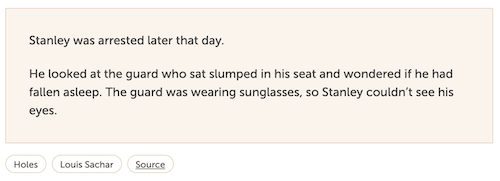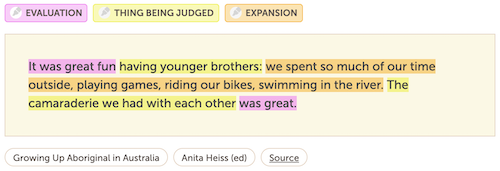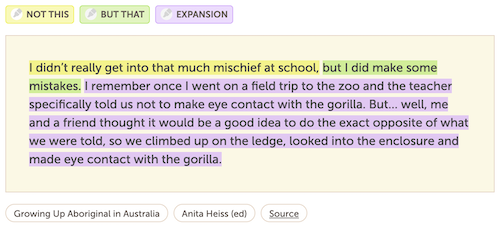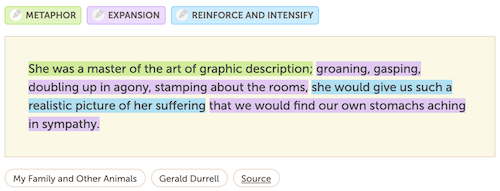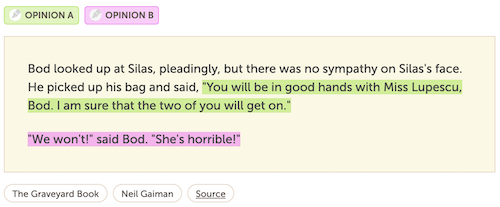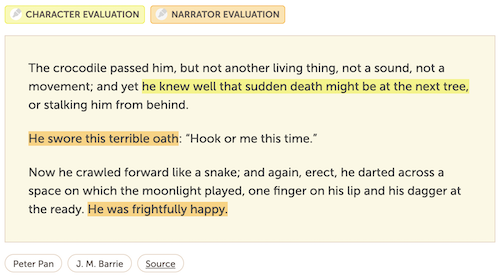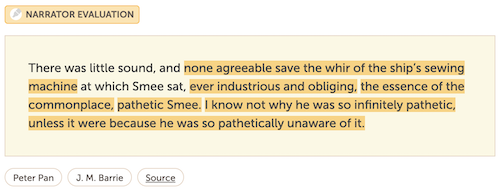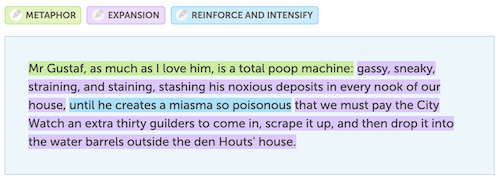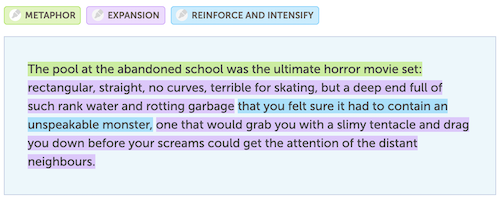We've published the latest lesson in Narrative Skills, on Valuing & judging.
This is another one of those skills that are easy to overlook (because of course that show-pony conflict gets all the attention 🙄), but it's crucial for narrative sense-making.
Why are valuing and judging so important?
To illustrate, we open the lesson by pointing out how this snippet:
Leaves the reader untethered (how are we supposed to feel about Stanley?) without this snippet:
Judging in first person
We then go on to explore ways in which characters express values and judgments in narrative.
To keep things clean, we start in first person point of view.
Techniques include labelling with adjectives and noun groups:
And using metaphor:
(We also talk about underlying values, emotional inference, changing opinions as a form of character arc, and the concept of the unreliable narrator.)
This part of the lesson relates closely to Emotional cause & effect: values and judgments are within the 'thought' part of the emotion-behaviour loop.
But things get even more interesting when we shift to third person!
Judging in third person
One of the great powers of third person point of view is that the narrator can have their own opinion about the story, and add their own colour to and comment on the characters and events.
So in this part of the lesson, we look at how a narrator can faithfully report what a character says about their opinions:
Then how often and easily a narrator judges character actions:
And what happens when the narrator's opinion diverges from that of the characters:
This part of the lesson is a direct complement to the lesson on Point of view, and tries to hammer home the (often, in student writing, under-utilised) power of third person POV.
Worked examples
The worked examples for this lesson are fun.
One series is based on the Arnolfini Portrait by Jan van Eyck, and profiles a Dutch merchant engaged in a long-running fashion feud with his neighbours, the van den Houts:
The other starts off about a girl who is into skateboarding in empty backyard pools and then turns into a quasi Stranger Things inter dimensional monster invasion:
You can preview the Valuing & judging lesson here.
WHAT'S NEXT?
Narrative on pause; time for some other text types!
We were about to dive into the next item on the Narrative Skills list—and there's a bunch: narrative distance, compelling detail, poetic devices, coming up with story ideas—but we've decided to hit pause and try... drumroll...
Some other text types.
It's been a long time coming, but there's enough narrative there to keep anyone busy for a while, so we figured we'd bite the bullet and do at least a little bit in the other major text types.
But what should we do, in what order?
One approach would be to leap from narrative to argument, the other major macro genre.
But you can't write an argument if you can't corral your facts, and that skill has roots in the report genre.
So I'm inclined to do at least a few lessons on report writing, starting with literally stating the facts, just the facts, nothing more, in the simplest possible way (as opposed to a tangled glop of sentence spaghetti).
After that we could explore a little analysis, since it's the next logical step, and then jump into argument and persuasive writing.
Although that approach is probably a more effective learning journey, it does put us in the position of having to figure out how to survey three distinct genres, each with its own instructional challenges, and that could really slow things down.
Alternatively, we know that some people want poetry lessons.
Or the NSW teachers might be desperate for short-form standalone lessons based on the NESA Module C narrative texts.
It's a conundrum!
If you have any thoughts, you can influence what we do!
If you're super keen for a particular topic of text in early 2022, then either send me an email or take that opportunity to join the Frankenstories Discord and we can group chat a solution.

